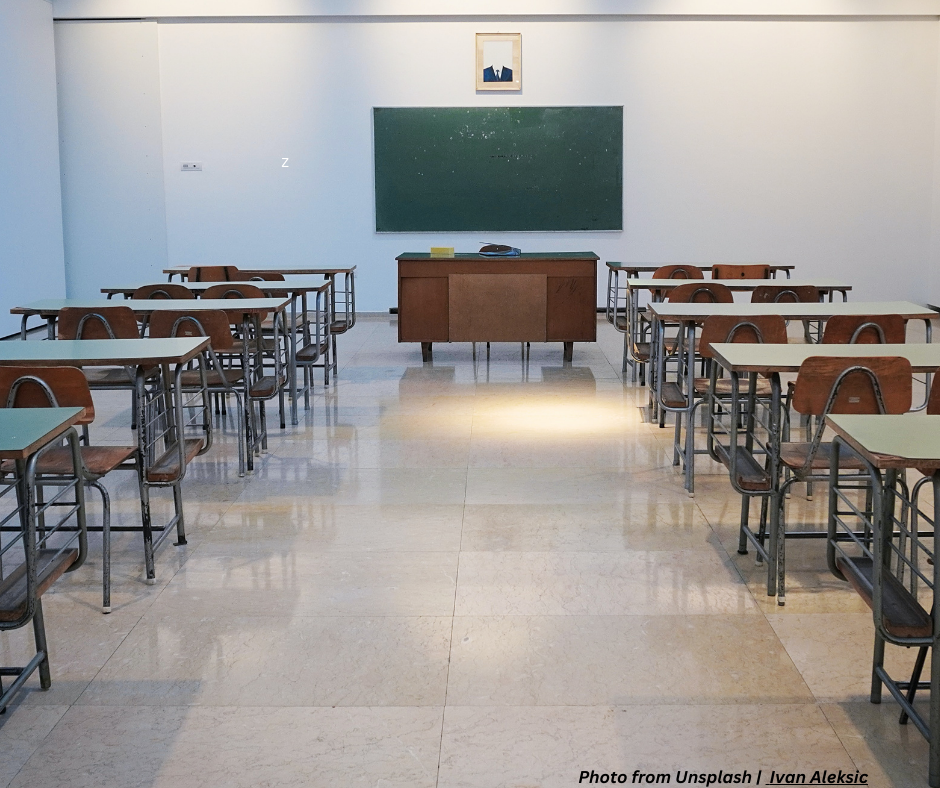
Photo from Unsplash | Ivan Aleksic
The following post does not create a lawyer-client relationship between Alburo Alburo and Associates Law Offices (or any of its lawyers) and the reader. It is still best for you to engage the services of a lawyer or you may directly contact and consult Alburo Alburo and Associates Law Offices to address your specific legal concerns, if there is any.
Also, the matters contained in the following were written in accordance with the law, rules, and jurisprudence prevailing at the time of writing and posting, and do not include any future developments on the subject matter under discussion.
AT A GLANCE:
The probationary period for academic personnel shall not be more than:
- three (3) consecutive years of satisfactory service for those in the elementary and secondary levels,
- six (6) consecutive regular semesters of satisfactory service for those in the tertiary level, and
- nine (9) consecutive trimesters of satisfactory service for those in the tertiary level where collegiate courses are offered on the trimester basis. (Section 92, Manual of Regulations for Private Schools)
Those who have served the probationary period shall be made regular or permanent. Full-time teachers who have satisfactorily completed their probationary period shall be considered regular or permanent. (Section 93, Manual of Regulations for Private Schools)
“The governing law for the employment status of teachers/professors/instructors are the manuals of regulations for private schools.” (Lolita Lacuesta v. Ateneo de Manila University (G.R. No. 152777, December 09, 2005)
In 1992, the then Department of Education, Culture and Sports (DECS), now known as the Department of Education (DepEd), issued the Revised Manual of Regulations for Private Schools (1992 Manual), which covered all employees in all levels of private educational institutions.
The Manual of Regulations for Private Schools provides:
“Section 92. Probationary Period. Subject in all instances to compliance with Department and school requirements, the probationary period for academic personnel shall not be more than three (3) consecutive years of satisfactory service for those in the elementary and secondary levels, six (6) consecutive regular semesters of satisfactory service for those in the tertiary level, and nine (9) consecutive trimesters of satisfactory service for those in the tertiary level where collegiate courses are offered on the trimester basis.
Section 93. Regular or Permanent Status. Those who have served the probationary period shall be made regular or permanent. Full-time teachers who have satisfactorily completed their probationary period shall be considered regular or permanent.”
In the case of Lolita Lacuesta v. Ateneo de Manila University (G.R. No. 152777, December 09, 2005), the Supreme Court ruled that the Manual of Regulations of Private Schools and not the Labor Code determines whether or not a faculty member in a private educational institution has attained a permanent or regular status.
Jurisprudence says:
“The Manual of Regulations for Private Schools, and not the Labor Code, determines whether or not a faculty member in an educational institution has attained regular or permanent status. [u]nder Policy Instructions No. 11 issued by the Department of Labor and Employment, “the probationary employment of professors, instructors and teachers shall be subject to the standards established by the Department of Education and Culture.” Said standards are embodied in paragraph 75 (now Section 93) of the Manual of Regulations for Private Schools.”
In the case of Arlene Palgan v. Holy Name University (G.R. No. 219916, February 10, 2021), the Supreme Court laid down the requisites before a private school teacher may acquire permanent status based on the foregoing provisions of the Manual of Regulations for Private Schools. To wit:
- The teacher serves full-time;
- He/she must have rendered three consecutive years of service; and
- Such service must be satisfactory.
It must be noted that only full-time teaching personnel can acquire regular or permanent status.
Alburo Alburo and Associates Law Offices specializes in business law and labor law consulting. For inquiries regarding taxation and taxpayer’s remedies, you may reach us at info@alburolaw.com, or dial us at (02)7745-4391/0917-5772207.
All rights reserved.

